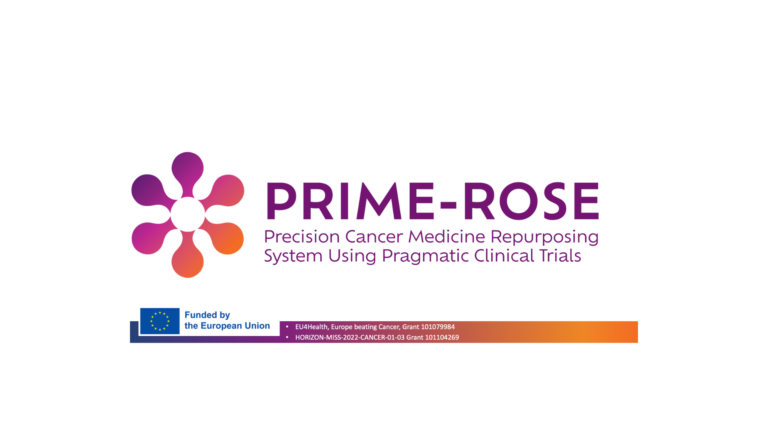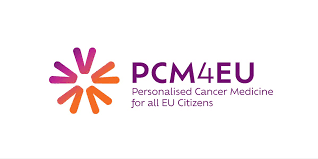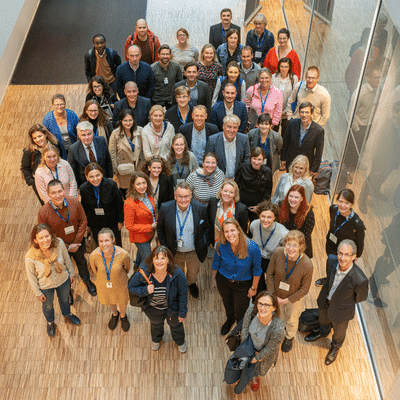ttopstart assisted the core group during the consortium building phase, ensured the adequate alignment between the call requirements and the project idea, but also provided its support in budget aspects, which allowed refining the project workplan throughout the grant preparation.
The situation
In the landscape of modern medicine, precision medicine stands as a beacon of hope, offering innovative disease treatments personalized to an individual’s genetic features. In 2022, two interconnected projects, PCM4EU and PRIME-ROSE, took significant strides towards advancing precision cancer medicine. With the support of the ttopstart team, these initiatives led by Prof. Dr. Hans Gelderblom (Leiden University Medical Center, Leiden, the Netherlands) and Prof. Kjetil Tasken (Olso University Hospital, Oslo, Norway) received an EU grant, marking a significant milestone in the journey towards revolutionizing cancer care.
The solution
Expanding networks and adopting a pragmatic approach
PCM4EU raised the challenge in the broadening of the consortium to include middle-income countries, as required by the call text that belonged to the EU4Health Programme. Prof. Dr. Gelderblom reflects on this hurdle, noting that
the call requirements were clear to also include middle-income countries in the consortium. After initiating the momentum and sending multiple invitations to join us, we received multiple confirmations from these middle-income countries that very positively received our project intent and clearly expressed their intention to join our adventure.
What sets PCM4EU apart is our practical, hands-on approach. Prof. Gelderblom emphasizes,
We are practical and we do the work, whereas many similar organizations are more theoretical and politically oriented.
Strategic analysis and leveraging established consortia
In the case of PRIME-ROSE, Prof. Kjetil Tasken emphasizes the importance of meticulous analysis of the call text when preparing the grant application.
We spent quite some time considering whether or not we should apply for this Horizon Europe Mission Cancer call. It was important for us to ensure that we had all the elements in place and a corresponding solution for each of the requirements for PRIME-ROSE.
PRIME-ROSE significantly benefited from the foundational discussions and framework provided by the pre-existing PCM4EU consortium. Prof. Tasken elaborates,
Once we felt confident in this, we presented the idea to the PCM4EU consortium, and with their unanimous approval, we wrote the grant. In our case, it was very helpful that the consortium was already established.
ttopstart valued the strong connections within the consortium and challenged them to ignite their potential to solve the expected challenges of the projects. We advised the coordinator during the consortium building phase, which led to the inclusion of key experts needed to tackle the expected outcomes and reach wider impacts. ttopstart challenged the client to see new opportunities and was in charge of the optimal alignment with the call requirements. ttopstart supported this network on the compliance and budget aspects, but also some refinements on the project workplan throughout the grant preparation.
Patient involvement: A key element
Both projects place a strong emphasis on incorporating patient perspectives. Prof. Tasken underscores,
Indeed, it was very important to us to have user participation in this project. Therefore, we ensured that implementation aspects were adequately covered in the project workplan for the ultimate sustainability of PRIME-ROSE.
Prof. Gelderblom adds,
We were very lucky to have patient representatives that were well informed about the expectations and incentives from the European funding bodies and European Commission. I learned a lot from them, and they were instrumental in being awarded the grant.
Sustainability and Impact
For PCM4EU and PRIME-ROSE, sustainability and impact are paramount. Prof. Gelderblom outlines some key goals:
Making a connection with the Guidelines of the European Society for Medical Oncology (ESMO) is a key component of the project workplan because it will ensure the implementation of our deliverables in the respective national healthcare systems. In that regard, another goal is to finish 1-2 third stage cohorts and bring them into the healthcare systems in different countries. And also, startup drug studies in countries where it is not yet available and build-up a functioning shared database.
The impact
Transforming Cancer Care with Precision Medicine
As PCM4EU and PRIME-ROSE continue to unfold, their impact on cancer treatment and healthcare as a whole promises to be profound, offering hope and improved outcomes to patients across Europe and beyond. These strategic approaches, dedication to patient involvement, and unwavering commitment to sustainability illuminate a path towards a future where personalized cancer treatments are not just a possibility, but a standard of care. These projects serve as beacons of hope in the ever-evolving landscape of precision medicine, paving the way for a brighter and more effective future in healthcare.
“We were very lucky to have patient representatives that were well informed about the expectations and incentives from the European funding bodies and European Commission. I learned a lot from them, and they were instrumental in being awarded the grant.”
– PROF. DR. HANS GELDERBLOM – PROJECT COORDINATOR OF PCM4EU


